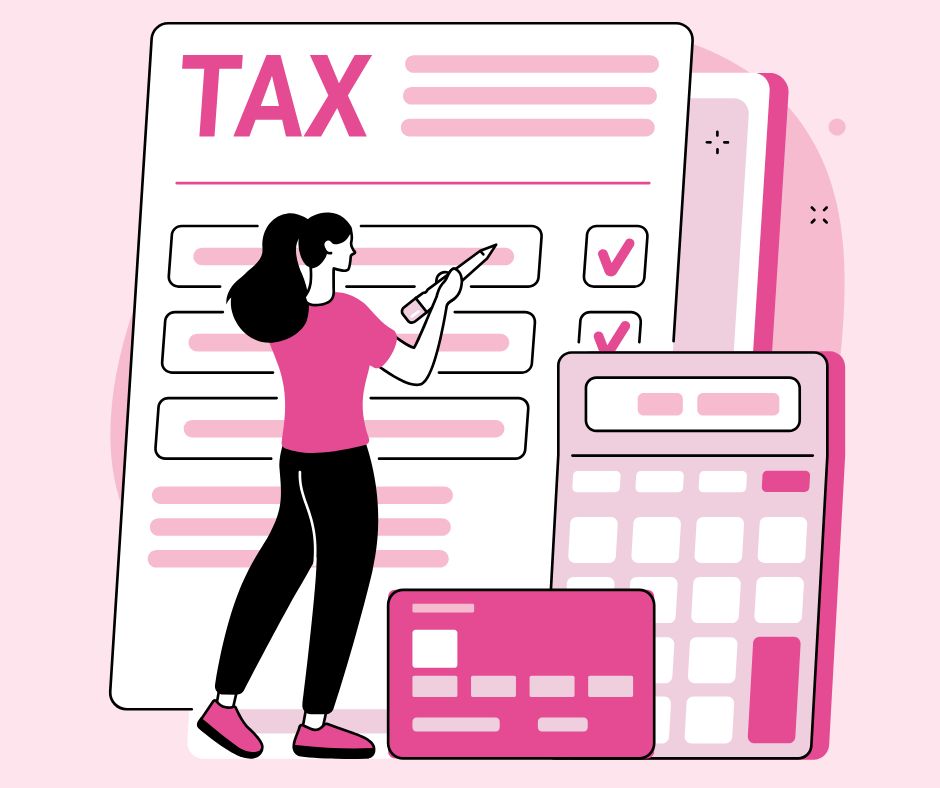Author’s Guide to Understanding Beneficial Ownership Information Requirement

UDATED MARCH 21, 2025: Beneficial Ownership Information filing is back on and due TODAY (March 21, 2025) if you formed your business before January 1, 2024. If you formed it January 1, 2025 or later, you have 90-days from business formation to submit your information. Check the FinCEN Filing website for details.
UPDATED DECEMBER 13, 2024: A judge has issued an injunction on the filing of the Beneficial Ownership. At this time, you are not required to file although you still can if you want. The U.S. Treasury Department is fighting this injunction, so you’ll want to check the FinCEN Filing website to stay updated.
In an effort to curtail business fraud, the United States requires certain types of businesses to report information about the individuals who own or control them. Failure to comply with this law could cost you up to $500 per day!
If you created a company (e.g. LLC) for your author business, you are required to fill out the Beneficial Ownership Information form through the U.S. Financial Crimes Enforcement Network (FinCEN).
In this article, you’ll learn about this law, who is required to supply their information and who is exempt, and where to go for more information.
Disclaimer: I am not an expert. This is article is a guide using the information from the Financial Crimes Enforcement Network. Please consult the official FinCEN resources for accurate and up-to-date information on the required format and contents of the form.
What is Beneficial Ownership definition?
Beneficial ownership refers to the individuals who have ultimate control or ownership of a company, even if their names are not listed as owners on official documents. The goal of this law is to stop “bad actors to hide or benefit from their ill-gotten gains through shell companies or other opaque ownership structures.”
Here is the goal of the FinCEN:
- Enhancing financial transparency: By disclosing beneficial ownership information, authors contribute to the overall transparency of financial transactions and help combat illicit financial activities.
- Preventing money laundering and corruption: Accurate information about beneficial ownership allows authorities to identify and combat money laundering and corrupt practices that can undermine the integrity of the publishing industry.
- Complying with legal requirements: Filling out the beneficial ownership form is a legal requirement set by FinCEN to increase transparency and accountability in financial transactions. By complying with these requirements, authors avoid penalties and ensure their legal standing.
- Maintaining professional reputation: Filling out the beneficial ownership form demonstrates authors’ commitment to ethical business practices and maintaining a professional reputation within the industry.
Admittedly, authorship seems like a really poor way to try and perpetrate fraud, but authors and publishers aren’t exempt from this new requirement.
In a sad bit of irony, the U.S. Financial Crimes Enforcement Network (FinCEN) has notices on its website informing people of “recent fraudulent attempts to solicit information from individuals and entities who may be subject to reporting requirements under the Corporate Transparency Act.”
Who is Required to Complete the Beneficial Ownership Form
You are required to complete the report if you are a:
Domestic company
- Corporation
- LLC
- Any entity created by filing with a secretary of state or similar office in the U.S.
Foreign company
- Entities (corporations, LLCs etc) formed under the law of a foreign country that have registered to do business in the United States by the filing of a document with a secretary of state or any similar office.
In essence, if you created an author business in which you formed a corporation, LLC or other entity by filing with your secretary of state or similar U.S. office, then you are required to file the Beneficial Ownership Information form.
Who is Exempt from Beneficial Ownership Form
For a full list of who’s except, visit the FinCEN FAQ page.
What isn’t on the list, but is mentioned on the FinCEN site’s FAQ, is that sole proprietors are exempt UNLESS the business was created by filing a document with a secretary of state or similar office. According to the FinCEN site, “Filing a document with a government agency to obtain (1) an IRS employer identification number, (2) a fictitious business name, or (3) a professional or occupational license does not create a new entity, and therefore does not make a sole proprietorship filing such a document a reporting company.”
Beneficial Ownership Information for Authors
If you’re an author who created a business (corp, LLC, or other through the secretary of state for your location), then you’ll need to fill out the beneficial ownership form. This form will collect information about who has ultimate control or ownership of your author or publishing company, or any other business entity you are involved in.
Reporting Deadlines for Beneficial Ownership Information:
Missing the reporting deadlines can have serious implications…up to $500 a day!! So it is important to complete and submit the necessary forms on time.
If you formed your business BEFORE January 1, 2024, you have until January 1, 2025 to complete the form. If you created your business entity on or after January 1, 2024 and before January 1, 2025, you have 90-days from receiving the notices of the company’s registration to file the BOI form.
Companies formed on or after January 1, 2025, will have 30 days to file their initial BOI reports with FinCEN.

How to File for Beneficial Ownership Information
When it comes to the beneficial ownership registry, authors can follow the guidelines provided by FinCEN to ensure compliance. The specific process may vary depending on factors such as the type of business entity and the reporting requirements in your jurisdiction.
Because you’ll have supply information and documents, start by pulling those together. You’ll need:
For the Business
1. Company legal name, trade names, Doing Business As or Trading As names.
2. Business Address
3. Jurisdiction of formation or registration (where you filed papers to form your company)
4. Taxpayer Identification number or TIN or foreign tax ID number
For the Individual
1. Name
2. Date of Birth
3. Address
4. ID number from acceptable identification document such as a current (not expired) passport, U.S. driver’s license, or government ID, and name of state or jurisdiction of the document.
In addition to the filing process, it is important to note that authors may need to obtain a FinCEN ID. This ID serves as a unique identifier for entities required to report under the Bank Secrecy Act and can be obtained through FinCEN. The FinCEN site indicates this is optional.
Here are the steps to help you navigate the filing process:
- Consider getting a FinCEN ID. This is optional but according to FinCEN, it can simplify the reporting process.
- Visit the official FinCEN Filing website and click on “Beneficial Ownership Information (BOI) Reporting.” You can download and fill in a PDF or use their online system.
- Review the guidelines and requirements provided by FinCEN to understand what information you need to provide.
- If you haven’t already, gather all the necessary documentation and details related to the beneficial owners of your publishing company or any other business entity you are associated with.
- Fill out the required forms accurately, ensuring that all the information provided is up-to-date and correct.
- Submit the completed forms and documentation through the designated channels specified by FinCEN.
- Keep a record of your submission, including confirmation receipts or any other documentation that verifies your compliance with the filing requirements.
FAQ about Beneficial Ownership Information
What is beneficial ownership information?
Beneficial ownership information refers to the individuals who have ultimate control or ownership of a company, even if their names are not listed as owners on official documents. It has been established for financial transparency and preventing illicit activities.
Why do authors need to fill out the beneficial ownership form?
Authors, like many other individuals or entities, may be required to fill out the beneficial ownership form to comply with legal requirements and increase transparency in financial transactions.
What are the reporting deadlines for beneficial ownership information?
The reporting deadlines for beneficial ownership information vary depending on when your company was formed. If you formed your business BEFORE January 1, 2024, you have until January 1, 2025 to complete the form. If you created your business entity on or after January 1, 2024 and before January 1, 2025, you have 90-days from receiving the notices of the company’s registration to file the BOI form. Companies formed on or after January 1, 2025, will have 30 days to file their initial BOI reports with FinCEN. .
How can authors file for beneficial ownership information?
Authors can file for beneficial ownership information by following the guidelines provided by FinCEN and consulting the official website for detailed instructions and required information.
Are there any exemptions to providing beneficial ownership information?
Yes, if you’re a sole proprietor or haven’t created a business entity by filing with the secretary of state, then you’re excempt. You can find more exemptions here.
Where can authors find additional information or conduct a beneficial ownership search?
Authors can find more information and answers to frequently asked questions on the official FinCEN website.
Beneficial Ownership Information Website
Beneficial Ownership Information FAQ
Beneficial Ownership Information Filing








Responses